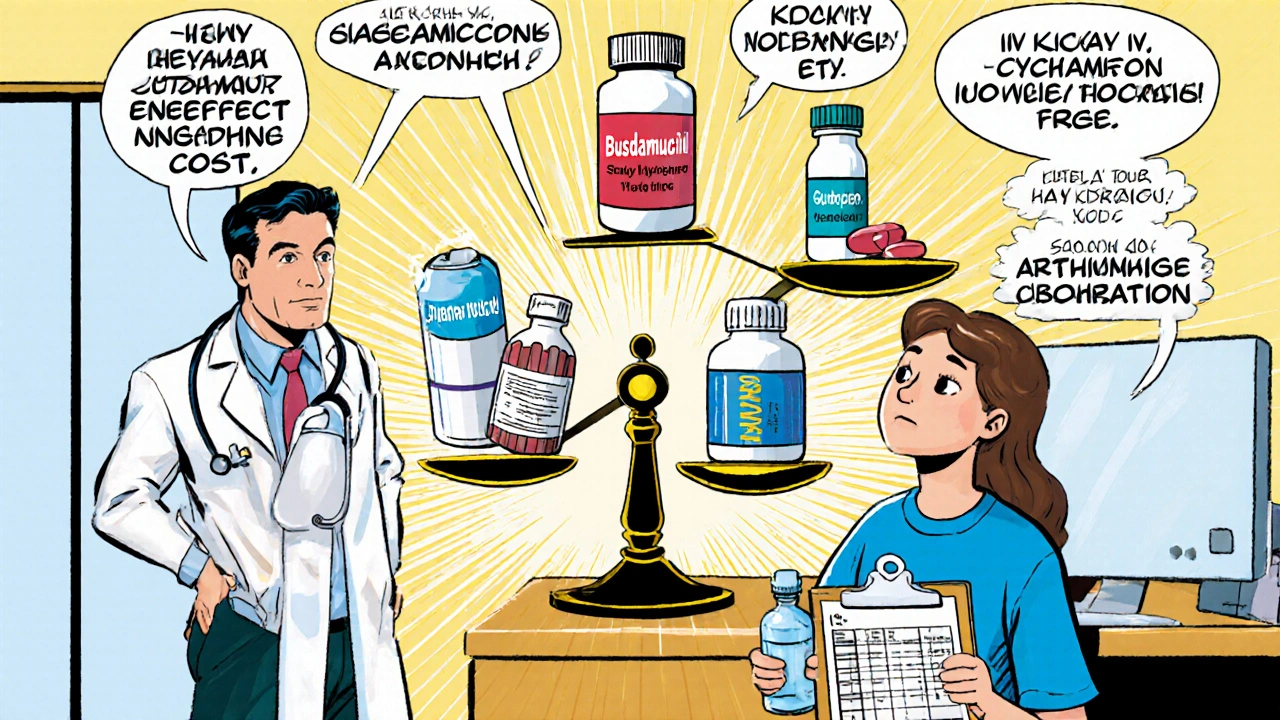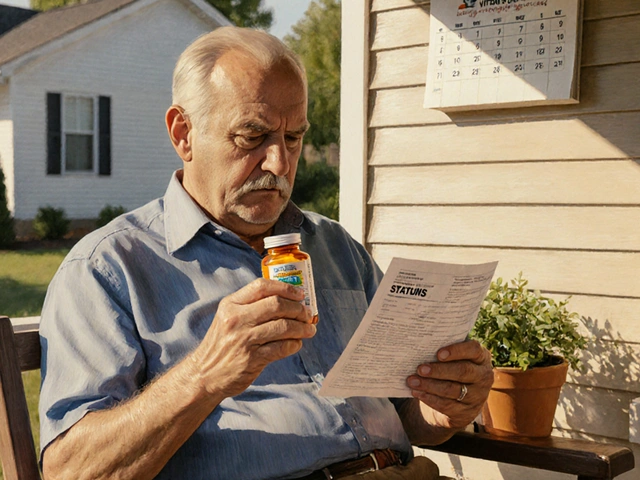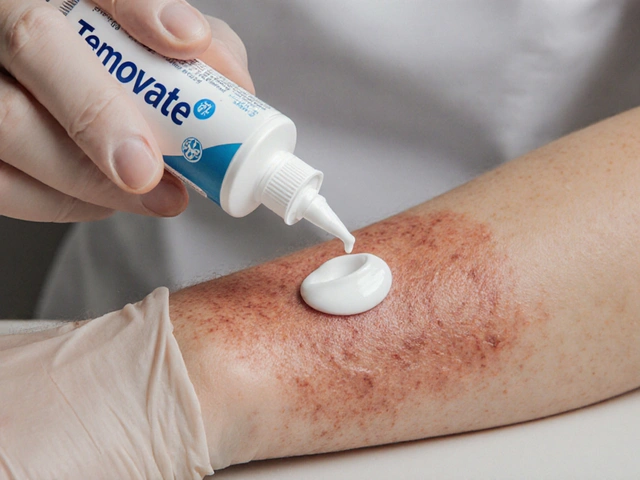Chemotherapy Option Selector
Personalized Chemotherapy Decision Guide
This tool helps you understand which chemotherapy options might be most appropriate for your specific situation based on cancer type, kidney function, and treatment priorities.
Recommended Options
Primary Recommendations
Key Considerations
When you or a loved one faces a cancer diagnosis, the flood of drug names can feel overwhelming. Alkeran often shows up as a key player, but you might wonder if there’s a better fit for your specific situation. This guide breaks down Alkeran (melphalan) and stacks it side‑by‑side with the most common alternatives, so you can see the trade‑offs at a glance and ask the right questions during your next doctor visit.
Key Takeaways
- Alkeran is an alkylating agent mainly used for multiple myeloma and ovarian cancer.
- Alternatives like cyclophosphamide, busulfan, chlorambucil, and bendamustine differ in toxicity profiles, dosing schedules, and approved indications.
- Choosing the right drug hinges on disease type, kidney function, prior therapies, and side‑effect tolerance.
- Most alternatives are cheaper but may require more intensive monitoring.
- Discuss with your oncologist how each option aligns with your treatment goals and lifestyle.
What Is Alkeran (Melphalan)?
Alkeran is the brand name for melphalan, an alkylating chemotherapy drug that attaches to DNA and prevents cancer cells from dividing. First approved by the U.S. Food and Drug Administration (FDA) in 1964, it’s been a backbone of treatment for certain blood and solid cancers for over six decades.
How Melphalan Works
Melphalan belongs to the nitrogen mustard class. It creates cross‑links between DNA strands, which triggers programmed cell death (apoptosis). Because it targets rapidly dividing cells, it hits cancer cells hard but also affects healthy cells in the bone marrow, gut lining, and hair follicles-hence the classic chemo side effects.
Primary Clinical Uses
Alkeran’s two big tickets are:
- Multiple myeloma - often given after high‑dose therapy and stem‑cell transplant.
- Ovarian cancer - usually combined with other agents in a regimen called “melphalan‑based” therapy.
It’s also used off‑label for certain neuroendocrine tumors and as a conditioning agent before bone marrow transplants.

Side‑Effect Profile
Commonly reported toxicities include:
- Myelosuppression (low blood counts), leading to infection risk.
- Nausea and vomiting, often manageable with anti‑emetics.
- Oral mucositis (mouth sores).
- Hair loss - usually temporary.
- Long‑term risk of secondary leukemias, though rare.
Kidney function matters; melphalan is cleared partially by the kidneys, so dose adjustments are needed for patients with reduced creatinine clearance.
Alternatives to Alkeran
Below are the most frequently considered substitutes. Each has its own niche, and the choice often depends on the cancer type, prior treatments, and how well you tolerate side effects.
Cyclophosphamide is another alkylating agent that’s been a workhorse in breast, lung, and lymphoma regimens. It’s taken orally or by IV and is known for a slightly broader spectrum of activity compared with melphalan.
Busulfan is a potent alkylator often used in conditioning regimens before bone‑marrow transplants, especially for chronic myeloid leukemia. It’s given orally or intravenously but requires careful blood level monitoring because of a narrow therapeutic window.
Chlorambucil is a less aggressive alkylating drug used mainly for chronic lymphocytic leukemia (CLL) and some low‑grade lymphomas. Its oral formulation makes it convenient for outpatient treatment, though it’s generally considered less effective for aggressive disease.
Bendamustine blends alkylating activity with a purine analog effect, giving it a dual mechanism. It’s approved for chronic lymphocytic leukemia, non‑Hodgkin lymphoma, and for some cases of multiple myeloma after other therapies have failed.
Side‑Effect Snapshot of Alternatives
- Cyclophosphamide: bladder irritation (hemorrhagic cystitis), alopecia, and potential for cardiac toxicity at high doses.
- Busulfan: pulmonary fibrosis, seizures, and severe myelosuppression; requires therapeutic drug monitoring.
- Chlorambucil: mild nausea, low‑grade myelosuppression, rare skin reactions.
- Bendamustine: higher rates of fatigue and infections, occasional rash, and infusion‑related reactions.

Comparison Table
| Drug | Primary Indications | Typical Dose & Route | Major Side Effects | FDA Approval Year |
|---|---|---|---|---|
| Alkeran (Melphalan) | Multiple myeloma, ovarian cancer | 4‑10mg/m² IV over 30min (often daily for 4days) | Myelosuppression, mucositis, secondary leukemia | 1964 |
| Cyclophosphamide | Breast, lung, lymphoma, autoimmune diseases | 600‑1000mg/m² IV q3‑4weeks or 50‑150mg oral daily | Bladder toxicity, alopecia, cardiotoxicity at high doses | 1959 |
| Busulfan | Pre‑transplant conditioning, CML | 0.8‑1mg/kg IV q6h (adjusted to target levels) | Pulmonary fibrosis, seizures, severe myelosuppression | 1959 |
| Chlorambucil | CLL, low‑grade lymphoma | 0.1‑0.2mg/kg oral daily | Mild nausea, low‑grade myelosuppression | 1957 |
| Bendamustine | CLL, NHL, relapsed myeloma | 120mg/m² IV on days1&2 of 28‑day cycle | Fatigue, infections, rash, infusion reactions | 2008 |
How to Choose the Right Agent
Think of drug selection like fitting a shoe: size, material, and comfort all matter. Here’s a quick decision framework you can run through with your oncologist.
- Diagnosed disease: If you have multiple myeloma, melphalan is often first‑line, especially before transplant. For CLL, bendamustine or chlorambucil may be more appropriate.
- Prior therapies: If you’ve already received high‑dose cyclophosphamide, doctors might avoid another alkylator to reduce cumulative toxicity.
- Organ function: Reduced kidney function pushes you toward dose‑adjusted melphalan or a drug like chlorambucil that relies less on renal clearance.
- Side‑effect tolerance: If bladder irritation is a concern, cyclophosphamide (with MESNA protection) might be less appealing than melphalan.
- Logistics: Oral drugs (chlorambucil) are convenient for home treatment, whereas IV agents (busulfan) often require clinic visits and monitoring.
Practical Tips & Common Pitfalls
- Stay hydrated. Adequate fluids help kidneys clear melphalan and cyclophosphamide, reducing toxicity.
- Monitor blood counts. Weekly CBCs are standard during melphalan cycles; missing them can delay dose adjustments.
- Watch for lung symptoms. Busulfan can cause early breathlessness-report any new cough or shortness of breath immediately.
- Use protective meds. MESNA is given with high‑dose cyclophosphamide to prevent bladder damage.
- Plan for fertility. Alkylating agents can affect sperm and egg production; discuss sperm banking or egg preservation before starting.
Frequently Asked Questions
Can I take melphalan at home?
Melphalan is usually given in a clinic via IV because the dosing requires precise timing and monitoring of blood counts. Some low‑dose oral formulations exist in other countries, but they’re not standard in the U.K.
Is cyclophosphamide stronger than melphalan?
Strength depends on the disease and dosing schedule. For many solid tumors, cyclophosphamide is more commonly used, while melphalan shines in multiple myeloma and ovarian cancer. Their toxicity profiles differ, so “stronger” isn’t a simple yes/no.
What’s the biggest risk of long‑term melphalan use?
Developing a secondary leukemia or myelodysplastic syndrome, though it occurs in less than 5% of patients after high‑dose therapy.
Are there cost differences between these drugs?
Generally, older agents like cyclophosphamide and chlorambucil are cheaper than newer drugs like bendamustine. However, insurance coverage, pharmacy discounts, and the need for monitoring can offset the base price.
Can these drugs be combined?
Yes. Oncologists often pair melphalan with steroids or proteasome inhibitors for myeloma, and cyclophosphamide is commonly combined with anthracyclines or taxanes for breast cancer. Combination decisions are individualized.
Bottom line: Alkeran remains a solid choice for specific cancers, but alternatives can offer better tolerability, convenience, or cost depending on your situation. Keep the conversation open with your healthcare team, bring these comparison points to the table, and choose the regimen that aligns with your health goals and daily life.






Comments
Ashley Leonard
15/Oct/2025Staying hydrated really helps manage melphalan side effects.
swapnil gedam
15/Oct/2025When your kidneys aren’t at full speed, melphalan doses need tweaking. The drug relies partly on renal clearance, so a lower creatinine clearance can raise blood levels. Make sure your oncologist checks your labs before each cycle. It’s a simple step that can prevent a lot of trouble.
Michael Vincenzi
15/Oct/2025I’ve seen patients who swap melphalan for cyclophosphamide when bladder irritation becomes a pain. MESNA can protect the bladder, but some still prefer the milder side‑effect profile of cyclophosphamide. Just keep an eye on blood counts; both drugs can drop them fast.
Courage Nguluvhe
15/Oct/2025From a pharmacodynamic standpoint, melphalan’s alkylating mechanism creates inter‑strand DNA cross‑links that are particularly lethal to plasma cells. Contrast that with cyclophosphamide’s metabolite, phosphoramide mustard, which has a broader spectrum but also a higher urotoxic risk. In the context of multiple myeloma, melphalan’s narrower target translates to a more predictable myelosuppressive curve, allowing tighter scheduling of autologous stem‑cell harvests. However, the narrow therapeutic index necessitates vigilant therapeutic drug monitoring, especially in patients with compromised renal function.
Oliver Bishop
15/Oct/2025Also watch your creatinine levels.
Alissa DeRouchie
15/Oct/2025Everyone acts like melphalan is the holy grail of chemo it isn’t just another poison it has its place but don’t forget the cheaper drugs can be just as effective especially if you can take them at home
Emma Howard
15/Oct/2025Wow!! I love how you pointed out the oral convenience of chlorambucil!! It’s such a game‑changer for folks who can’t make frequent trips to the clinic!! Just remember, the gentler side‑effects come with a trade‑off in potency!!
dee gillette
15/Oct/2025While the article presents a balanced view, it underestimates the logistical burden of busulfan monitoring. Therapeutic drug levels require frequent blood draws, which can be a hassle for patients living far from specialized centers. Moreover, the pulmonary toxicity risk, although rare, mandates baseline and periodic lung function tests. These practical considerations should weigh heavily in treatment decisions.
Jasin P.
15/Oct/2025Sure, but who cares about a few extra labs when you can get a fancy new drug? The real issue is that most patients never get informed about the cost differences.
Lily Đàn bà
15/Oct/2025Honestly, if you’re terrified of hair loss, skip melphalan – the alopecia can be brutal. Cyclophosphamide might give you a better scalp story, but then you have to deal with bladder pain. It’s a trade‑off, and patients need to decide which nightmare is less scary. The article could have highlighted that emotional toll more.
Joseph O'Sullivan
15/Oct/2025Isn’t it fascinating how we chase the perfect chemo cocktail, yet end up juggling side‑effects like circus balls? In my view, the true art lies in matching drug half‑lives with patient lifestyle. Throwing in a dose‑adjusted melphalan before stem‑cell rescue can be poetic if you time it right. But don’t ignore the simple truth: compliance drives outcomes.
Conor McCandless
15/Oct/2025When I first read about melphalan’s historical roots, I was reminded of a grandfather who once whispered that chemistry is merely the language of death and rebirth intertwined. The cross‑linking of DNA strands, a process so microscopic, yet its ramifications echo through the marrow of a patient’s future. One could argue that the elegance of an alkylating agent is matched only by its ruthlessness; it does not discriminate between rogue cancer cells and the gentle divisions of our own gut lining. This duality forces the oncologist to become both a poet and a butcher, crafting regimens that sing in harmony with a patient’s biology while wielding the blade of cytotoxicity. Moreover, the necessity of renal dose adjustments adds a layer of individualized mathematics, turning each cycle into a bespoke equation rather than a one‑size‑fits‑all prescription. In the theater of treatment, the supporting cast-anti‑emetics, growth factors, protective agents like MESNA-play crucial roles, each stepping into the spotlight just when the main act threatens to dim. The real drama, however, unfolds after the infusion, as blood counts dip and the patient’s immune fortress teeters, reminding us that victory is fragile and fleeting. Yet, within that fragility lies hope, the stubborn belief that a temporary suppression can pave the way for a durable remission. And so, the story of melphalan is not merely a chart of side‑effects versus efficacy; it is a narrative of balance, timing, and the relentless pursuit of a cure that respects both science and the human spirit.
kat gee
15/Oct/2025Melphalan is just one piece of the puzzle, but if you’re not careful you’ll end up with a lot more than you bargained for. Its side‑effects can be a real downer, especially the mouth sores. Keep the water flowing and your mouth clean.
Rene Lacey
15/Oct/2025Philosophically speaking, chemotherapy forces us to confront the paradox of destruction as a means to create life. Every dose of melphalan is an act of controlled annihilation, targeting the proliferative arrogance of malignant cells while risking collateral damage to the very tissues that sustain us. This duality compels the practitioner to adopt a mindset akin to a chess grandmaster, anticipating not only the immediate capture of a piece but also the ripple effects across the board. The decision matrix expands when one introduces variables such as renal insufficiency, which demands a recalibration of the dose, much like adjusting the tension of a violin string to achieve the desired pitch without snapping it. Furthermore, the psychological terrain cannot be ignored; patients must reconcile the anticipation of therapeutic benefit with the dread of side‑effects like myelosuppression and secondary leukemia-a fear that can dominate their contemplation of the treatment pathway. The interplay between hope and horror is not merely anecdotal; it is quantifiable in quality‑of‑life scores, which influence adherence and, ultimately, outcomes. Thus, the elegance of melphalan lies not only in its biochemical mechanism-alkylating DNA to induce apoptosis-but also in its capacity to provoke a deep, existential dialogue about mortality, resilience, and the limits of medical intervention.
johnson mose
15/Oct/2025Picture this: a colorful palette of chemo choices, each with its own vibe. Melphalan’s deep, smoky notes pair well with stem‑cell transplants, while bendamustine adds a bright, punchy splash for relapsed cases. If you love the drama of a good infusion, you’ll appreciate the rhythmic cadence of IV pushes. Just remember, the side‑effect symphony can get loud-keep your earplugs (aka anti‑nausea meds) handy.
Ria M
15/Oct/2025Oh, the glorious theater of chemotherapy! One minute you’re sipping your tea, the next you’re battling a cascade of fatigue and fevers-truly a performance worthy of a standing ovation. Yet, the audience (our bodies) often cries for an intermission, demanding compassion over relentless aggression.
Michelle Tran
15/Oct/2025👍👍👍